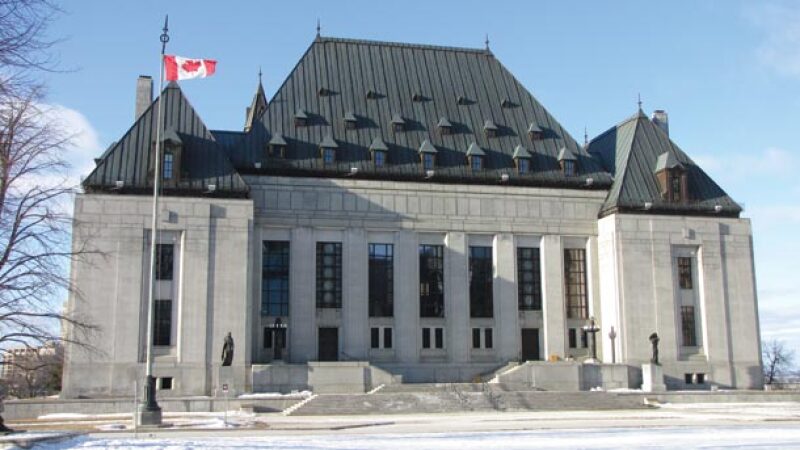
The result
Online music preview clips are covered by fair dealing
The impact
More robust fair dealing provisions, particularly online
Society of Composers, Authors and Music Publishers of Canada (SOCAN) v Bell Canada was one of five copyright cases heard by Canada's Supreme Court in 2012. The decisions helped define Canadian copyright law for the internet, creating precedents which largely weighed in favour of the end user and the public interest. All of the cases originated from rulings by the Copyright Board of Canada and were heard by the country's Supreme Court.
In the Bell Canada case, the court provided a much-needed answer to the question of whether copyright owners should receive royalties for preview clips of music. The court found that 30-90 second previews were covered by fair dealing for purposes of research, agreeing with the Board's conclusion that customers use the previews to conduct research on which music to buy.
Rogers Communications v SOCAN concerned similar issues. The court considered whether streaming online music constitutes a telecommunication to the public under the Copyright Act, which would entitle SOCAN to a royalty payment. The justices confirmed the principle that streaming music online is a communication to the public. However, they concluded that offering music for download should not be classified as a communication, so services like iTunes are not obliged to pay additional performance royalties.
In Entertainment Software Association and Entertainment Software Association of Canada v SOCAN, the court considered questions relating to music royalties in downloaded video games. The central issue was "whether a download of a video game that includes music is a communication of that music to the public by telecommunication within the meaning of paragraph 3(1)(f) of the Copyright Act".
The court ruled that delivering a video game featuring copyrighted music via the internet does not entitle the copyright holder to additional royalties beyond those received for the reproduction of the music. The justices said that a separate communication tariff would violate the principle of technological neutrality, creating a special set of rules for the internet compared to other methods of distribution.
In Province of Alberta as represented by the Minister of Education v Canadian Copyright Licensing Agency Operating as Access Copyright, the court ruled that teachers making photocopies for classroom use are covered by the research provisions of fair dealing. The justices rejected Access Copyright's argument that the teacher had a different purpose to the student when making photocopies.
In Re:Sound v Motion Picture Association of Canada, the court considered whether copyright holders should receive additional royalties when their music is played as part of a soundtrack on television or in the movies. It ruled that televising music in this way did not constitute a "public performance" that would entitle artists and record studios to additional payments.
Case details |
| Copyright office: CIPO Copyright holders: Various, represented by SOCAN, Access Copyright and Re:Sound Court: Supreme Court of Canada Case numbers: 33800, 33922, 33921, 33888, 34210 For plaintiffs: Gowling Lafleur Henderson for SOCAN, Fasken Martineau DuMoulin for Rogers Communications, McCarthy Tétrault for Entertainment Software Association, Fasken Martineau DuMoulin for Province of Alberta and Osler Hoskin & Harcourt for Re:Sound For defendants: Fasken Martineau DuMoulin for Bell Canada, Gowling Lafleur Henderson for SOCAN, Norton Rose for Access Copyright and McMillan for Motion Picture Theatre Associations of Canada |
This case was selected as one of Managing IP’s Cases of the Year for 2012.
To see the rest, click on one of the cases below.
The 10 cases of the year
A fillip for the EU pharmaceutical sector
Relief for trade mark owners in red sole saga
Australian TV streaming service held to be illegal
Smartphone war hits front page in the US
Liberalising the EU’s software market
Victory for fair dealing in Canada
Lacoste loses its trade mark in China
Google prevails in Android attack
EU test case clarifies class headings
Ten you might have missed
Canada: Ambiguous claims can invalidate patents
Russia: Certainty on parallel imports
Italy: TV formats win copyright for the first time
First FRAND cases litigated worldwide
Data exclusivity backed by Mexican courts
China: A shift over OEM manufacturing
Authors in the US able to reclaim joint copyrights










